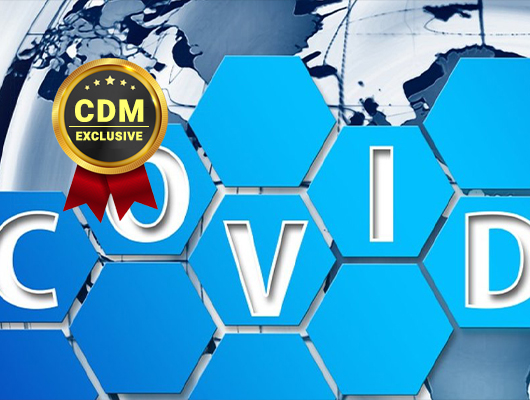By Robert Galarza, CEO, TruTrace Technologies
By now, we all know the cost of COVID-19. Many countries have struggled to contain the virus, forcing people to practice social distancing, wear masks, and take extra precautions to minimize exposure. Frontline workers are unable to secure the PPE needed to keep them safe. News outlets and social media are pushing information on the public, right and wrong, causing rifts amongst communities.
The pandemic has ignited a crisis of trust that affects people, governments, products, and processes. What has become clear in the quest to contain and combat the virus is the need for timely data from reliable sources.
Crypto technology can verify, secure, and share data, making it ideal for managing some of the biggest issues surrounding the spread of coronavirus — the lack of data security, outdated surveillance systems, and poor supply chain management.
Blockchain can build new paradigms of trust by providing transparency for managing and sharing information. Using decentralization and blockchain technologies, organizations around the world are able to connect like never before, uniting humanity in a collective front to fight COVID-19 and future viruses.
Let’s examine three ways blockchain is helping stop the spread of COVID-19.
How Blockchain Manages Data Sharing
In March 2020, the World Health Organization (WHO) partnered with several major tech companies (including Microsoft, IBM, and Oracle), along with international health organizations and government agencies to launch an open data hub called MiPasa.
Created by HACERA, the platform aims to detect COVID-19 carriers and infection hotspots quickly and precisely. MiPasa will securely share information among individuals, hospitals, and authorities, which will aid in public health analysis and create a single source of verified and up-to-date information.
Governments around the world are introducing contact tracing apps — smartphone apps that use phone tracking technology to oversee the population’s movement in an effort to monitor and control outbreaks. One of the main challenges associated with the adoption of these apps is the need to ensure data protection and privacy for users. That’s where blockchain comes in as a means to store data in ledgers, protecting it from unauthorized access.
Governments that implement crypto techniques can tackle the pandemic while ensuring patient privacy is uncompromised. Facilitating the sharing of essential COVID-19 related data will help in diagnosis, treatment, and research for developing a vaccine.
How Blockchain Helps Track Donations
Blockchain ensures donations — monetary or medical equipment — are transparent and traceable. Previous handling of public donations and the distribution of aid has caused distrust in the perception of some charity organizations, which has given rise to donation tracking platforms like Shenzong. Blockchain’s transparency provides donors with full traceability of donations, from the point of being received, to how donations have been matched to areas most in need, to when donations are delivered. By ensuring donations are reaching the correct destinations, those most in need will receive the medical equipment needed to help stop the spread of the coronavirus.
How Blockchain Protects Supply Chains
One of the biggest issues that have emerged from the pandemic is the inability to authenticate healthcare products, leading to a breakdown of trust in supply chains. The unprecedented demand for quality disinfectants around the world has created an opportunity for counterfeit and defective products to flood the market. Unfortunately, thousands of defective products are reaching the market because people are trying to cut corners. This is the biggest dark spot for a lot of PPE orders; they don’t know where the products are coming from. The FDA’s recent warnings about deficient and even dangerous products in the market reinforces the need for reliable products.
Blockchain allows consumers and healthcare practitioners to track the origin and providence of medical supplies, ensuring products are trustworthy, transparent, and traceable. Utilizing digital ledgers, blockchain records supply chain data on a granular level, connecting information in a way that can be quickly and rapidly accessed.
Dynamic recall systems are designed to recall a batch lot, so if a product is discovered to be faulty, blockchain facilitates the ability to connect all the data points back to the original source. This provides data security to manufacturers on the materials used that can be tracked from the origin. Subsequently, purchasers are reassured they are buying safe, quality products.
A positive note to take away from the tragedy of the pandemic is the acceleration of innovative systems to help stop the virus from spreading. We might yet see personalized wellness as the next step for blockchain in the fight against the coronavirus. Blockchain has the capability to manage lifestyle on an individual level — sleep patterns, fitness levels, nutrition — and how you can best maximize your health to build the T cells and create the antibodies in your system to stay healthy.
About the Author
 Robert Galarza is Chief Executive Officer of TruTrace Technologies, developer of the first integrated blockchain platform that registers and tracks intellectual property from Genome to Sale for the cannabis industry.
Robert Galarza is Chief Executive Officer of TruTrace Technologies, developer of the first integrated blockchain platform that registers and tracks intellectual property from Genome to Sale for the cannabis industry.


